I’m writing this down before I forgot I wrote it down. If you look at my posts, you’ll notice I’ve been off-line for a while. That’s because I spent a…
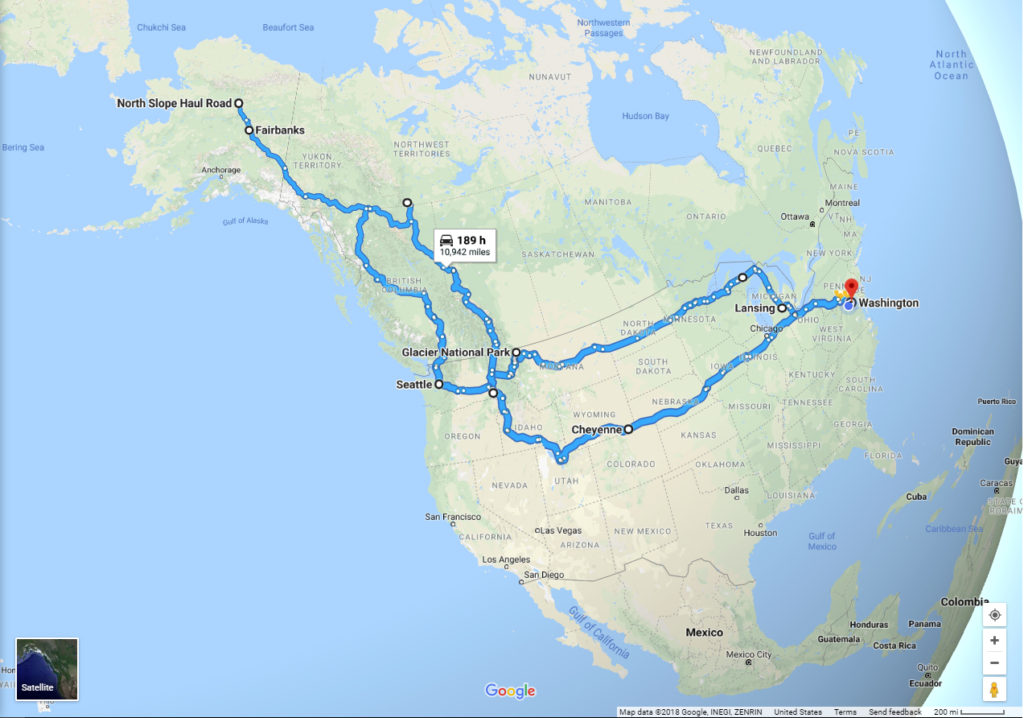
I’m writing this down before I forgot I wrote it down. If you look at my posts, you’ll notice I’ve been off-line for a while. That’s because I spent a little over a month undergoing treatment for my cancer followed by an equally long road trip to the Arctic Circle and back. If you read the title you know we’re going over the trip north, not to the hospital.
I already knew that the people between the Appalachian and Sierra Nevada/Cascade Mountains aren’t the same as those that live on the coasts. No learning there—those who can’t see the Atlantic or Pacific Oceans tend to be friendlier; own more stuff made in the US, and don’t jog or bike as much (you can infer what you want from that). I did learn that the people on the upper peninsula of Michigan don’t consider themselves the same as those who live in the mitten. Yoopers, as they call themselves are the type of people you would expect to find in Montana, Idaho, Wyoming, and those places where a vehicle isn’t a vehicle unless it has a gun rack.
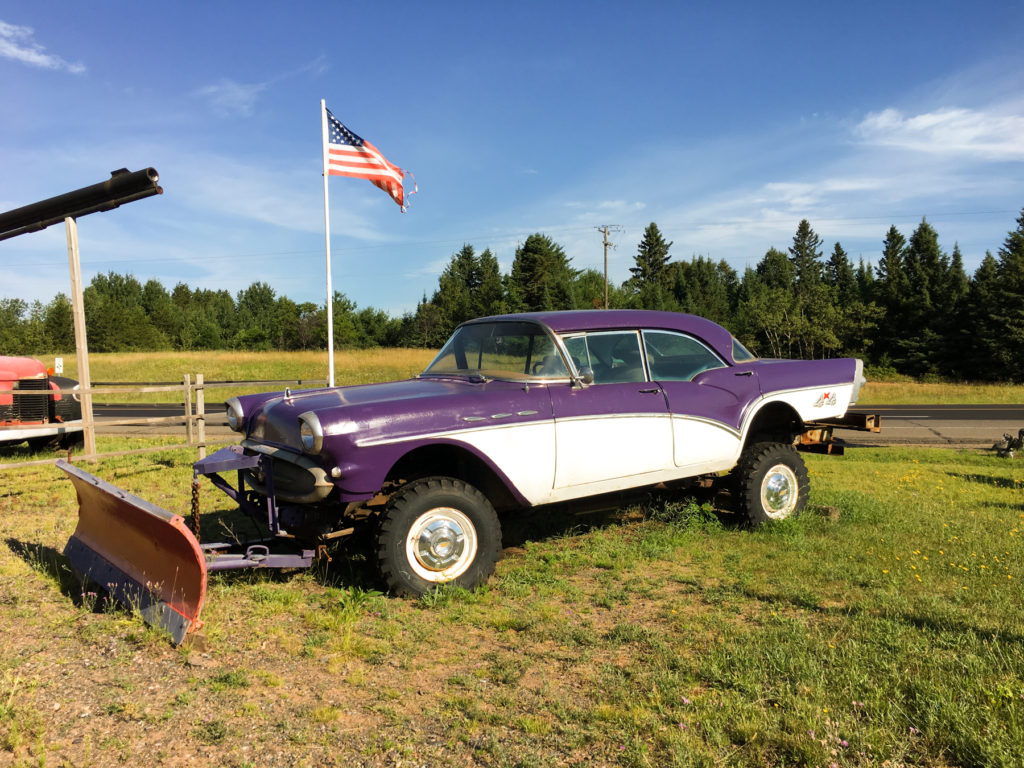
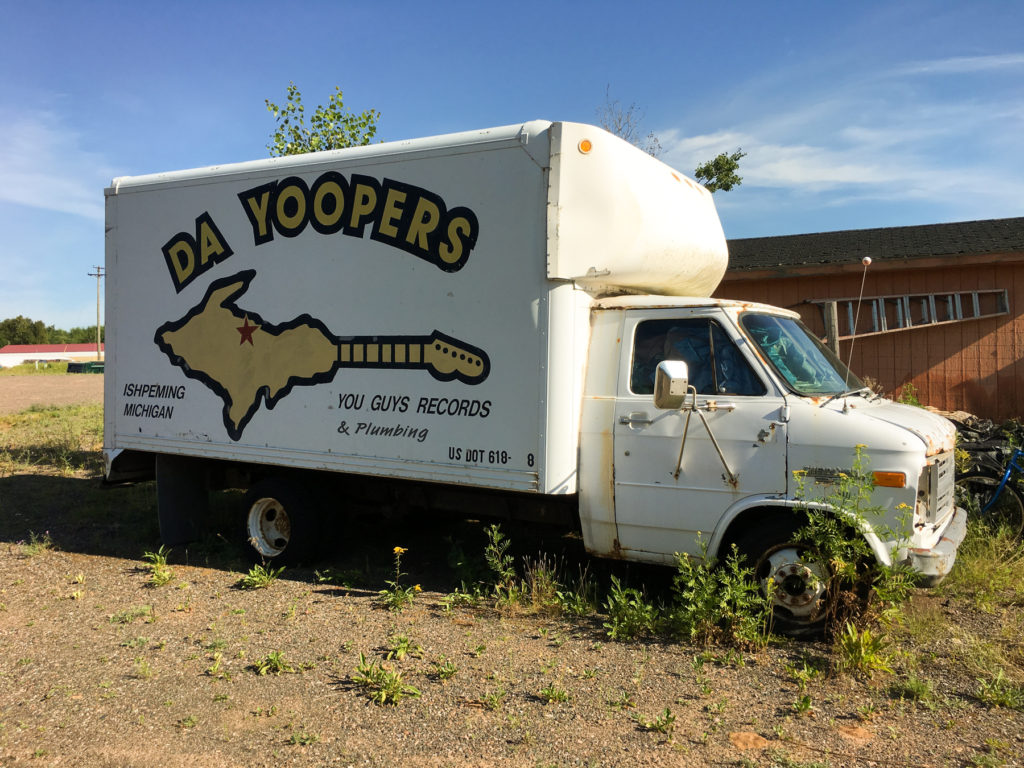
I had never been to Glacier National Park, but much to my disappointment it’s like almost every other national park—overcrowded. We started out early in the morning from the eastern end of the Going to the Sun Road and by the time we got to Logan Pass, every pullover was full. Even the parking lot at the Logan Pass Lodge was closed. The only time to really see out national parks is when school is in session.
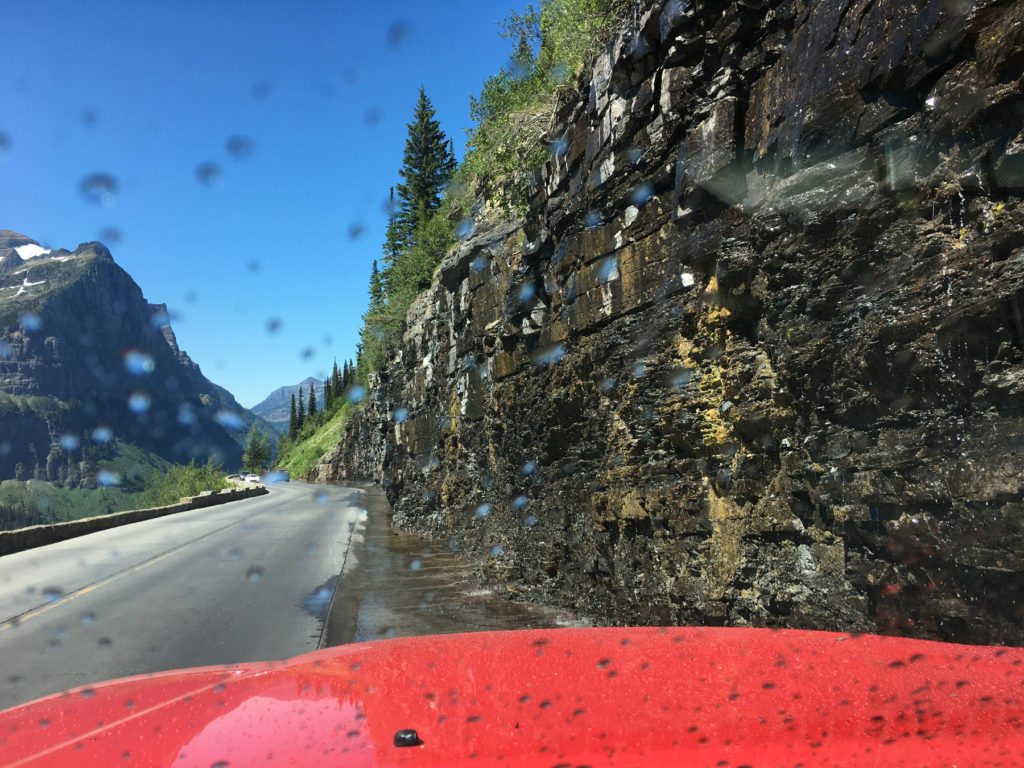
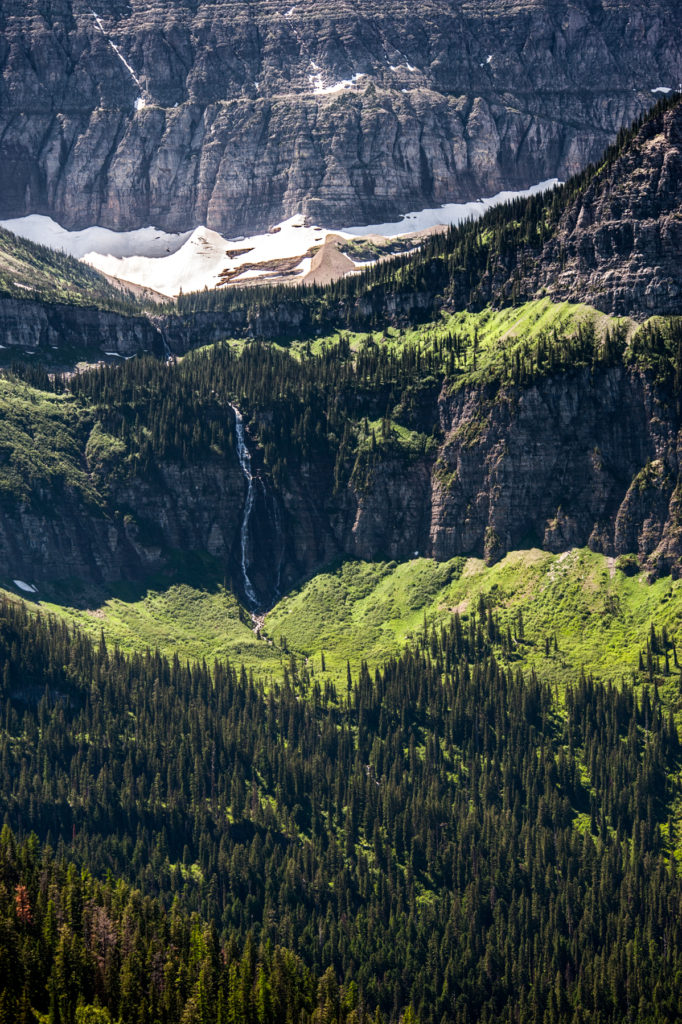
Now I’ve been through Canada before, but not most of what we visited on this trip. The most important rule of survival above 54˚ latitude is: if you see a place for a gas fill up, even if it’s a conex box and cost $6.20/gallon. We did have the recommended additional equipment: two containers with gas, a full sized spare, a windshield repair kit, containers of water, extra windshield wiper fluid. The only of this we had to use, was the windshield repair kit.
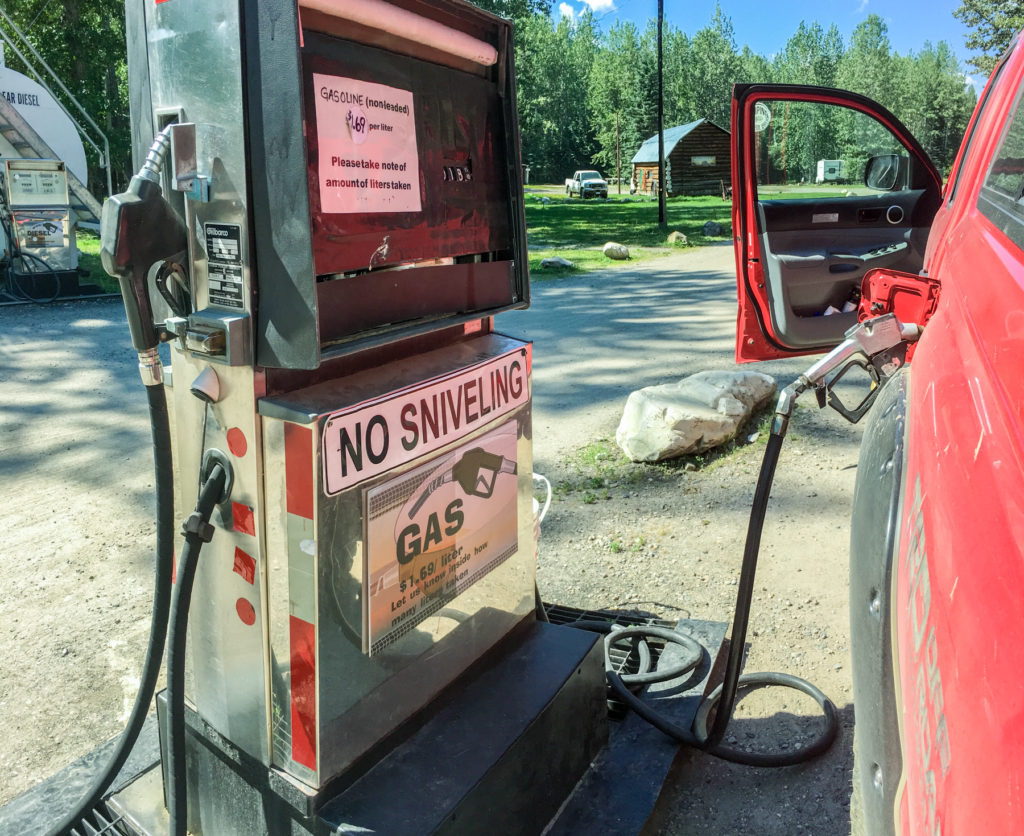
In Canada here are tons of pull offs with bear-proof trash cans. About 25% of those have outhouses that for some reason don’t stink. Not only is there plenty of camping (unmanned—you’re on your own), but apparently you can pull over and camp anywhere there are no signs prohibiting overnight stopping. I only saw one place where overnight stopping was no allowed. Clearly this is to give all those bicyclists we passed who were 80km from any structure permanently inhabited by humans a place to stop for the night.
Then there are the forest fires! There was smoke in the air pretty much from when we left the western side of Glacier National Park until we got about 100 miles into Alaska. Coming back again there was smoke in the air starting about 100 miles from Yukon Territories until Wyoming. The fires were said to be the result of global warming allowing the mountain pine beetles and spruce beetle to move further north with a longer season to breed and spread. Then there’s the drought and higher than average temperatures.
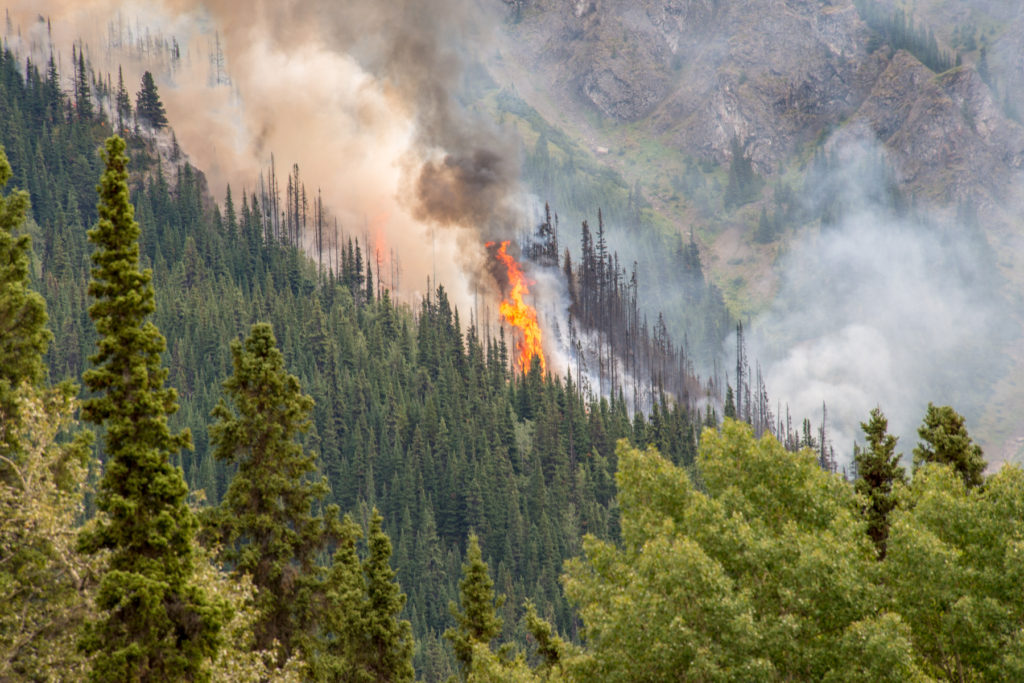
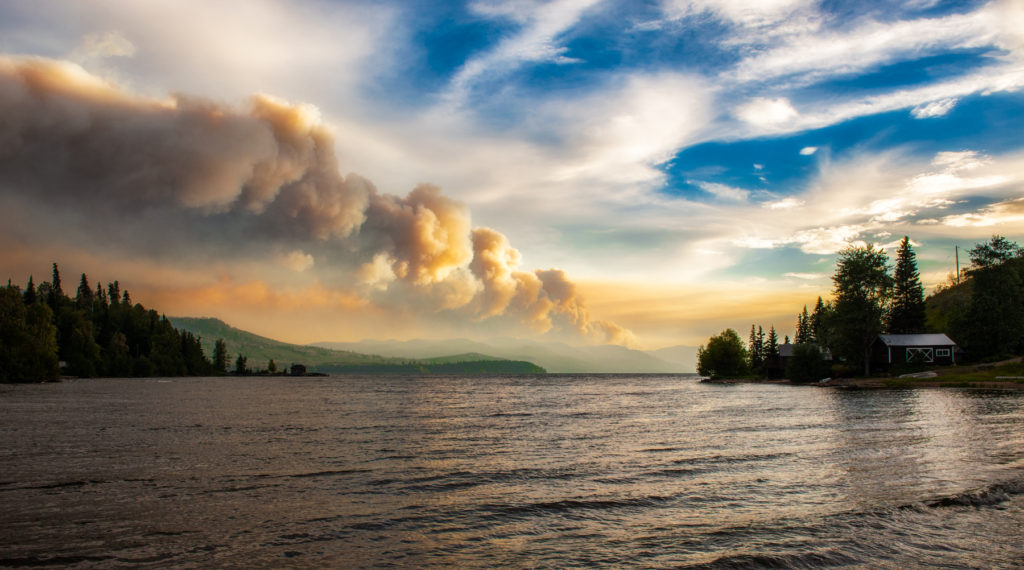
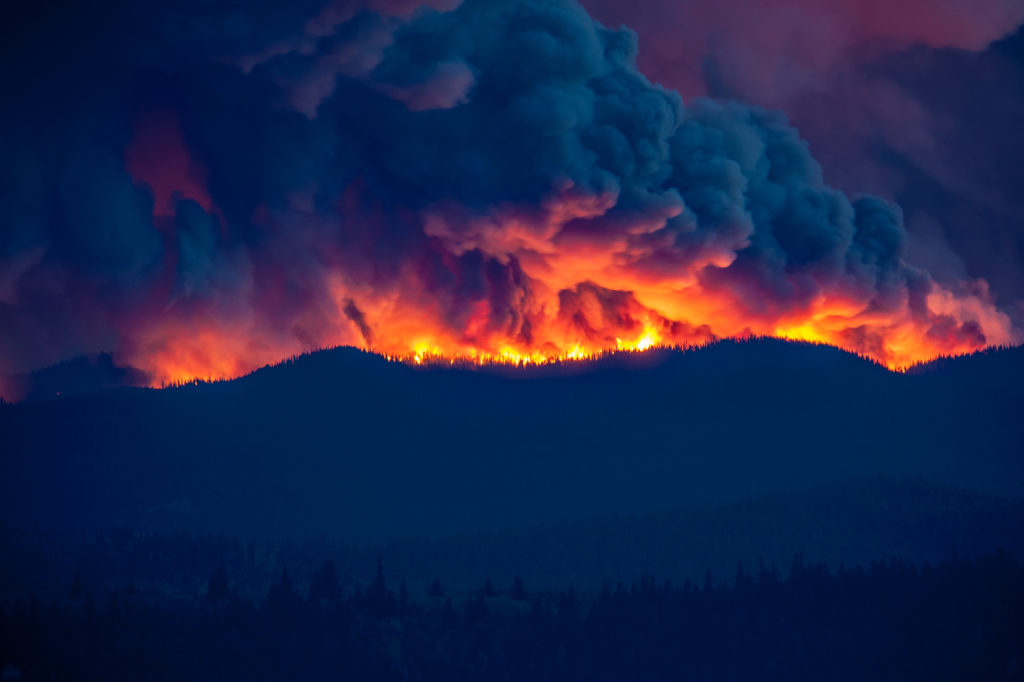
Speaking of heat…people in Northern British Columbia and Albert north generally don’t have air conditions. We stopped for the night in Watson Lake, Yukon Territories and were given the option of not accepting the rooms. Due to the heat wave the rooms were 90˚F and only had one tiny window, which did open; but no air conditioning. We took them because everyone in town was in the same boat. I was tempted to go outside and sleep on a picnic table—it got down to 52˚F outside that night. Buildings up there are built to hold out the -40˚F winters, not +90˚F summers. We were provided with fans, so I slept in the very warm but bug-free room.
Just in case you were wondering, other than on the mountain tops, there was no snow inside the Arctic Circle.

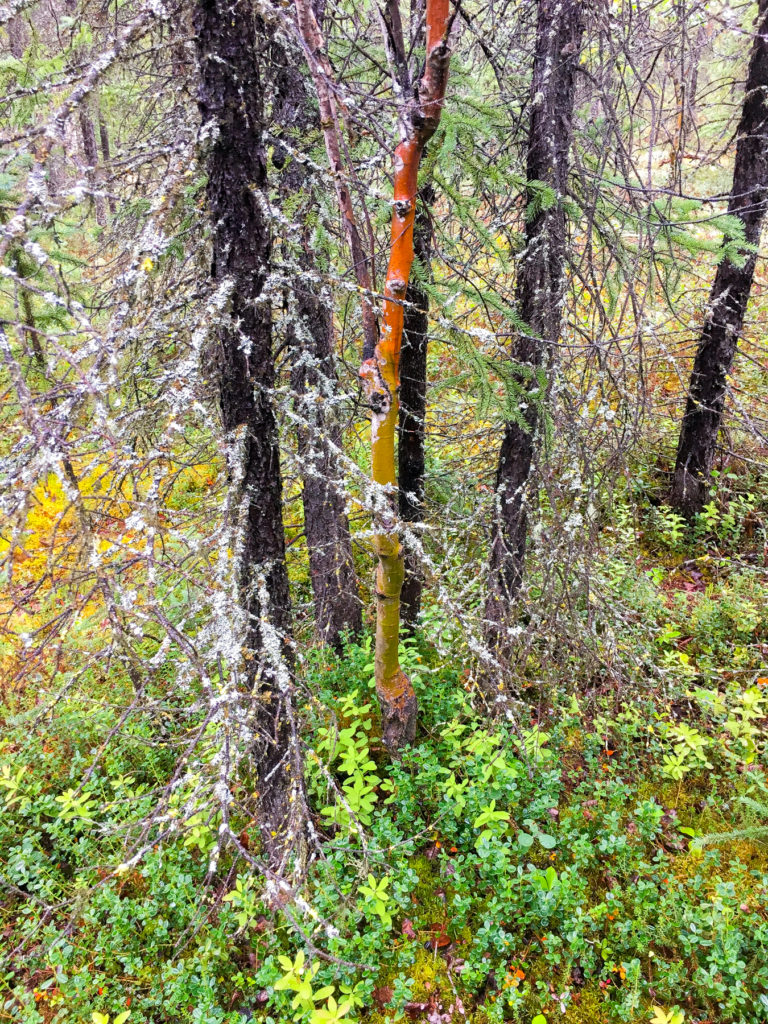
Then there was the drive home—when we hit Nebraska we were looking for a Tardis. ¿What we still had Nebraska, Iowa, Illinois, Indiana, Ohio, Pennsylvania, and Maryland to drive through? We were sure glad to be home after the 12,000 mile drive that cost $2,500 in fuel alone. We did meet some others doing sort of the same thing in RVs and they spend over $7,000 in fuel for a similar trip. They also complained that campgrounds are now where people go who do things you can’t do in hotels; like smoking and getting stinking drunk singing along with their howling dogs.
So what did I really learn this summer? I learned that I don’t need to do that again unless we stretched the trip out to 90 or more days…and there’s no way I would use an RV. Finally if you’re going to drive in Montana on roads other than I-90, you need to learn to drive with your wrist on the top of the steering wheel so you can wave back to everyone.